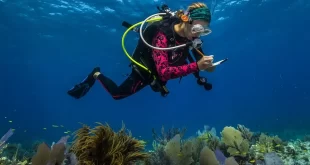The Molecular NeuroTherapeutics Laboratory directed by Dr. Tsuneya Ikezu, is seeking for applications from qualified postdoc candidates with expertise in neuroscience, extracellular vehicles and omics biology for the translational studies of neurologic disorders. Two positions are immediately available at Ikezu Lab at Mayo Clinic Florida.
Dr. Ikezu is recognized as a pioneer in the field of neuroimmunology and its role in the progression of neurodegenerative diseases including Alzheimer’s disease (AD) and front temporal dementia.
His lab is interested in investigating the pathological function of small extracellular vesicles (EVs), which are known to transfer abnormal proteins as vehicles inside the brain. Their mission is to decipher the molecular machinery of EVs which could be a future therapeutic target of AD, frontotemporal dementia or aging process. The research will be based at the brand-new lab at Department of Neuroscience, Mayo Clinic Florida, recently relocated from Boston University in 2020, supported by world-class level lab equipment as well as core facilities in Mayo institute.
Ikezu lab has connected with many prestigious collaborators in the world to enhance research activity and acquire cutting edge knowledge. This position will work in a highly collaborative environment, focusing on identification of candidate molecules from proteomic profiling, machine learning and experimental validation using novel platform such as AD animal model, and AD patient derived iPSC or organoid culture.
Each applicant must possess an advanced degree (Ph.D.) in a relevant field with less than 5 years of postdoc experiences. The ideal candidates may have expertise in animal models of neurodegenerative diseases, animal surgeries, biochemistry including EV isolations, primary, iPSC and mesenchymal cell culture, organoid culture, proteomic profiling, molecular biology, confocal imaging analysis or computational data analysis. The ideal candidates also should be team players with high scientific standards and communication skills, and have ability to work in an interactive, fast-paced environment.
The accepted candidate will be trained to work independently in animal models of neurodegenerative disorders, molecular engineering, extracellular vesicles or iPSC cell culture system. They are expected to keep records and data of all scientific experiments according to established procedures, occasionally supervise students, act as a source of information and advice to other members of the group on scientific protocols and experimental techniques. They will have opportunities to draft technical reports, manuscripts for scientific journals, and present work internally and externally as needed for their career development.
The following links provide more information about the laboratory and institution: https://www.mayo.edu/research/faculty/ikezu-tsuneya-m-d-ph-d/bio-20507827
Laboratory of Molecular NeuroTherapeutics: http://www.tsuneyaikezu.com
Department of Neuroscience, Mayo Clinic Florida: https://www.mayo.edu/research/departments-divisions/department-neuroscience-florida/overview
To inquire, please send the following files to ikezu.tsuneya@mayo.edu: Curriculum vitae (including publication list), a statement of research interest including brief description of past work, and contact information of three references.
Tsuneya Ikezu, M.D., Ph.D.
Department of Neuroscience
Mayo Clinic Florida
 medjouel.com Study Non Stop
medjouel.com Study Non Stop



